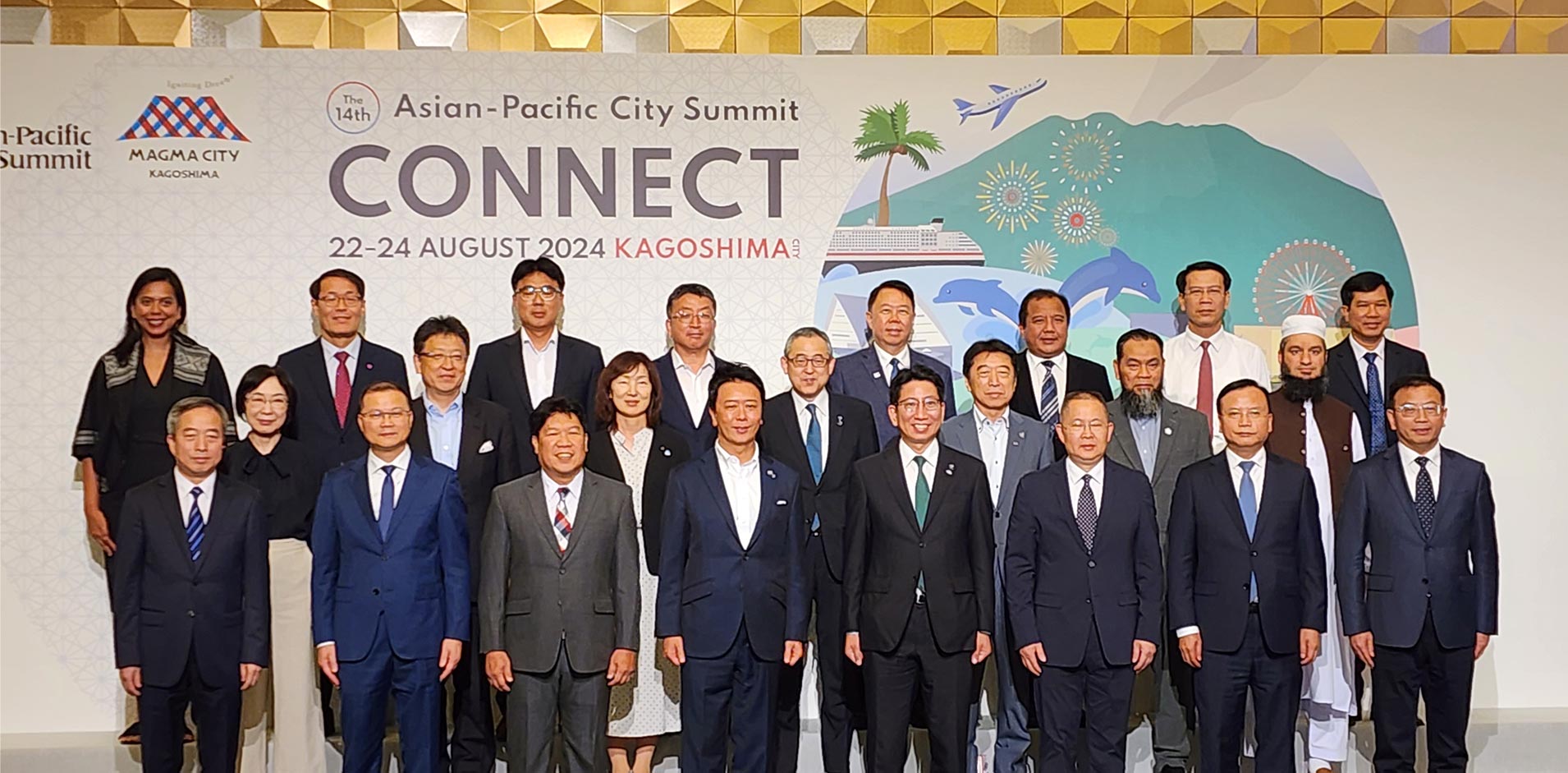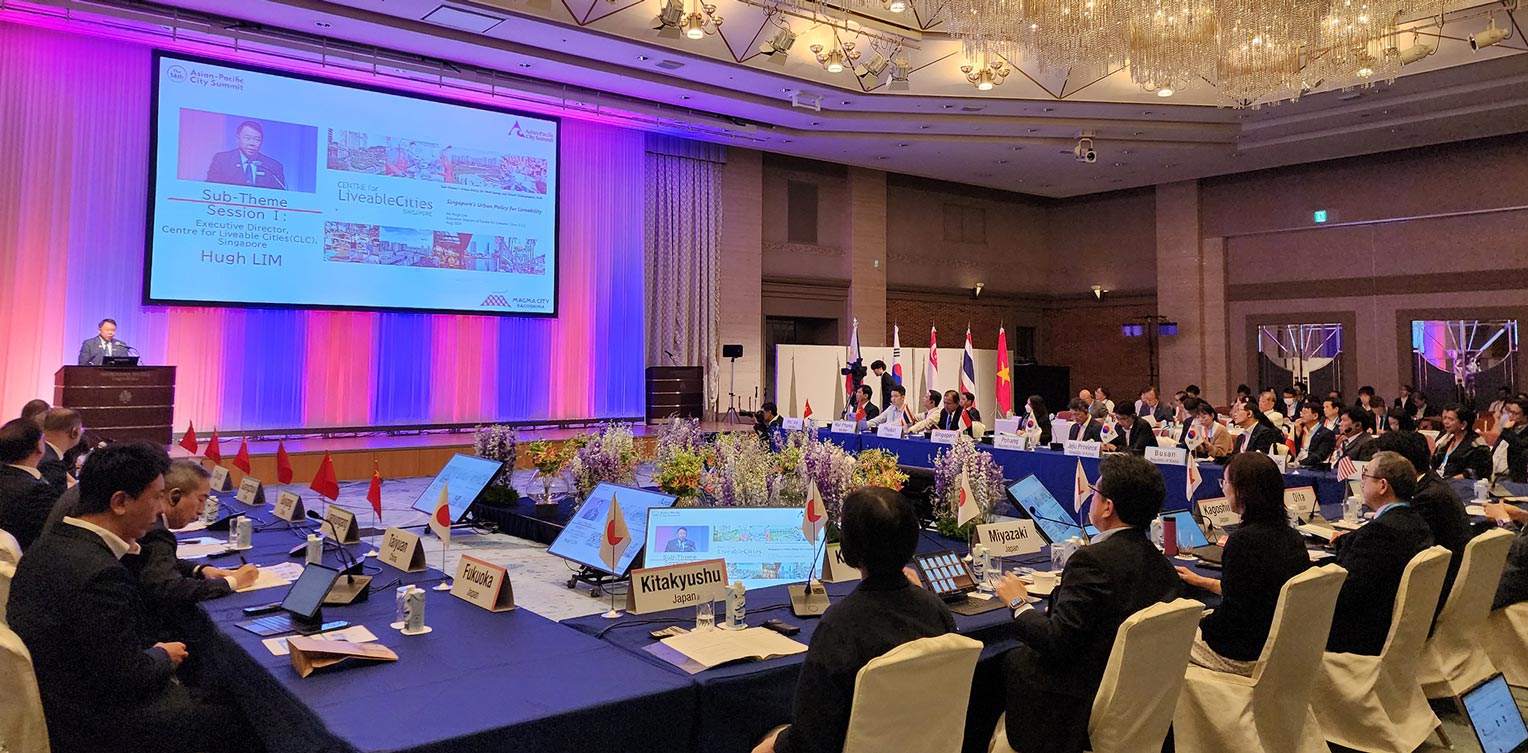
The summit focused on the theme “CONNECT: Urban Policy Under the New Normal” and addressed the challenges and opportunities which arose from the COVID-19 pandemic, demographic shifts, climate change, and socioeconomic disparities. Discussions centred around sustainable urban development, emphasising the importance of human connections and inclusive policies, under three sub-themes:
- Urban Policy for Well-being and Future Demographic Shift
Participating cities are grappling with common issues such as demographic challenges, including youth outmigration, population ageing, and falling birth rates. This session focused on sharing initiatives and discussing strategies to enhance and sustain citizens' well-being, with the goal of fostering prosperity for both cities and their inhabitants.
Executive Director Hugh Lim was a keynote speaker at this session. Through a presentation titled “Singapore’s Urban Policy for Liveability”, Hugh shared about Singapore’s initiatives to address urban challenges such as ageing population and falling fertility rates, by focusing on quality-of-life initiatives and self-contained townships, while continually striving for high liveability.
- Urban Policy with Resident-Centric Innovation and Technology
This session explored how technological innovation can enhance citizens' lives while ensuring inclusivity and leaving no one behind, alongside discussing the importance of strengthening local economic foundations post-COVID-19. Participating cities shared their initiatives in various fields, including innovation and start-up efforts, to promote significant economic effects and social reforms, regardless of the scale of action.
- Urban Policy toward Climate-Resilient City
This session showcased advanced decarbonisation and low-carbon initiatives, as well as resilient urban infrastructure development, aiming to foster cities that can withstand climate disasters while contributing to global climate goals.
 Key Takeaways
Key Takeaways- Demographic Challenges:
Cities across the Asia-Pacific region are facing similar demographic issues, including ageing populations, youth outmigration, and falling birth rates. There is a collective focus on developing strategies to enhance citizens' well-being and create prosperous, liveable cities despite these challenges.
- Technology and Inclusivity:
There is a strong emphasis on leveraging technological innovation to improve urban life, but with a crucial caveat - ensuring inclusivity and leaving no one behind. Cities are exploring ways to balance technological advancement with social equity, particularly in the post-COVID context.
- Climate Resilience:
Urban policymakers are recognised as key players in addressing climate change. The summit highlighted the importance of developing resilient urban infrastructures and implementing decarbonisation initiatives at the city level to contribute to global climate goals.
At the closing of the 14th APCS, the Kagoshima Declaration outlined four key commitments:
- Improving quality of life for all residents through inclusive urban strategies and partnerships.
- Enhancing city adaptability to global changes by leveraging digital innovation and addressing urban issues.
- Continuing to share efforts and progress towards achieving SDGs and promoting international cooperation.
- In 2026, the city of Fukuoka will be the host for the 15th APCS.
This declaration emphasised the commitment of Asia-Pacific cities to sustainable development, inclusivity, innovation, and international collaboration in addressing urban challenges.
Bilateral Meetings
During the conference, the CLC delegation took the opportunity to meet with Mayors and city leaders from Fukuoka, Guangzhou, Taiyuan and Manila. Executive Director Hugh Lim also had pull-aside talks and meetings with cities such as Kagoshima, Jeju, Busan, Ipoh, Miyazaki, Phuket and Hai Phong. Hugh shared largely on CLC’s work, including the recently launched City Network for the Lee Kuan Yew World City Prize, as well as on our upcoming signature platforms – the World Cities Summit Mayors Forum 2025, and the World Cities Summit 2026.